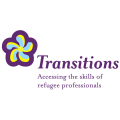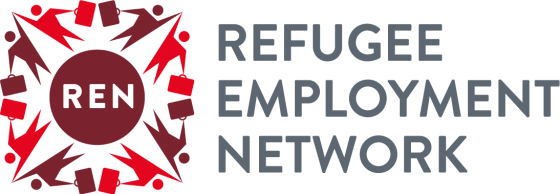
Guidance for Employers
Whether you’re taking your first steps towards hiring refugees or looking to enhance existing programmes, our resources are here to support your business to increase refugee employment in your workplace.
There are 484,900 refugees who have sought safety in the UK. Employment is key to refugee integration, yet unemployment among refugees is four times the national average.
Half of all refugees in the UK hold A-Levels or higher qualifications, yet only 43% are employed in roles matching their skills. This deep underemployment is a significant waste of talent and has detrimental impact on people’s mental health.
Asylum seekers – from engineers, to doctors, to skilled workers – are excluded from working while their claims are processed – a lengthy average of 39 weeks. Surviving on as little as £7 a day or £8.86 a week in full board accommodation, they are unable to contribute their skills and potential to the UK. This prolonged wait can lead to CV gaps and professional deskilling.
Even after gaining refugee status, the pressure to find housing and secure benefits within 28 days often forces people into low-paid, unsuitable work, increasing their risk of labour exploitation.
That’s why we are working with our network to advance refugee employment in the UK. Read more about how your business can employ refugees to rebuild their lives, thrive in the workforce, integrate into society, and contribute to the UK economy.
From Arrival To Integration: Building Communities for Refugees and for Britain
This guide is based on recommendations from the Commission on the Integration of Refugees, convened by the Woolf Institute to improve refugee integration in the UK. Drawing on insights from over 1,250 contributors, including refugees, community leaders, policymakers, and experts from diverse fields, the Commission has developed practical, evidence-based solutions to help refugees navigate employment and integration pathways, with voices of lived experience at its core.
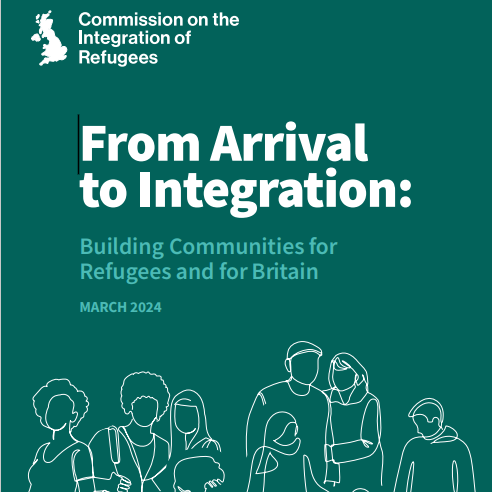
Tapping Potential: Guidelines to Help British Businesses Employ Refugees
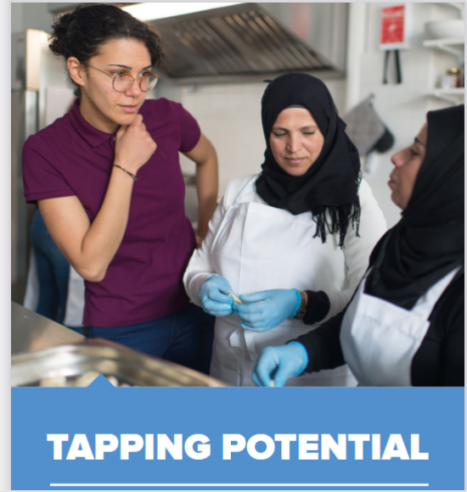
UK Employers’ Guide to Hiring Refugees
The UK Employers’ Guide to Hiring Refugees is a manual for companies that are interested in hiring refugees, and have questions about the logistics and practicality of employing them in the UK
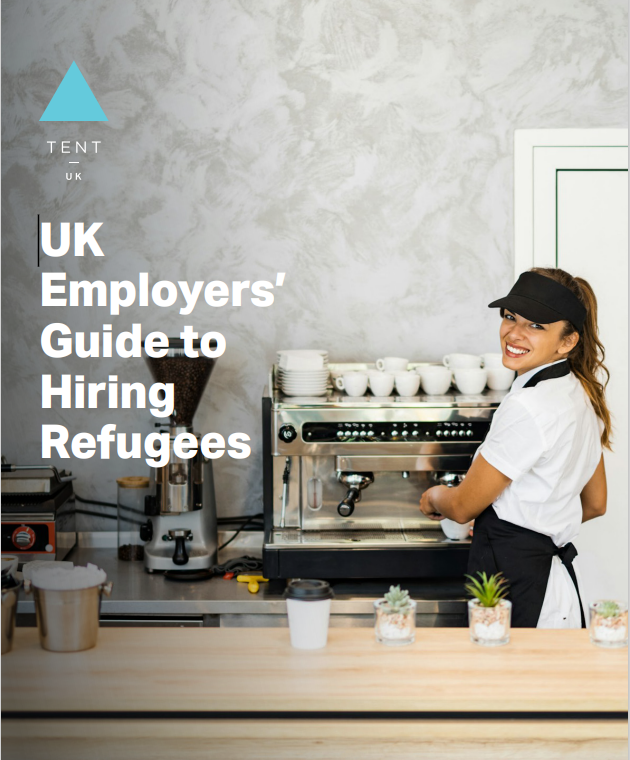
Migrants in the UK: An Overview
This briefing provides an overview of the UK’s migrant population. It looks at how many migrants there are in the UK, where they live, and where they are from.
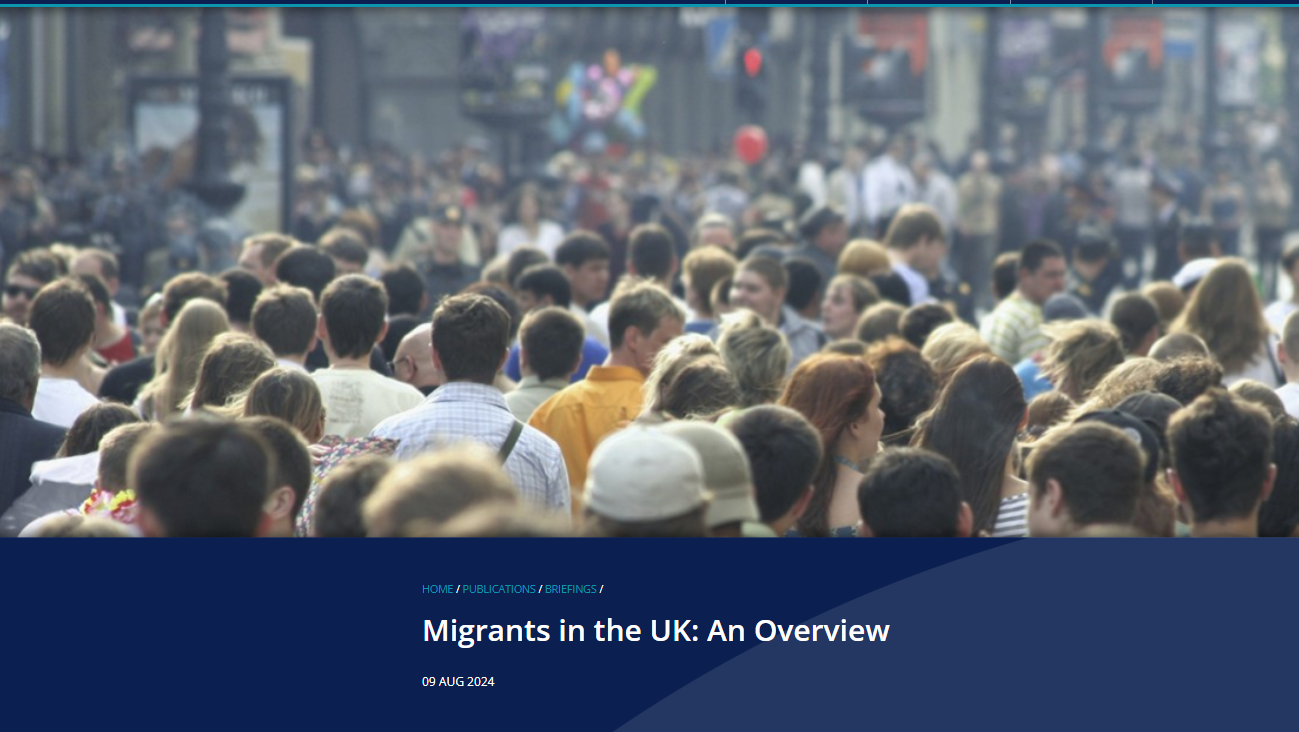
At its heart, REN is a membership network. You can be part of it.
If you are interested in joining the Refugee Employment Network, you can join us today by completing our membership form.
Latest news
-
 17th June, 2025What We Learned (and Changed) to Make Our Recruitment Inclusive for Refugee TalentThis blog, co-authored by Jenny Walton, CEO of the Refugee Employment Network (REN) and the Experts by Experience (EbE) Employment Initiative, reflects on how we redesigned our hiring process to be more inclusive of refugee talent. It outlines what we …
17th June, 2025What We Learned (and Changed) to Make Our Recruitment Inclusive for Refugee TalentThis blog, co-authored by Jenny Walton, CEO of the Refugee Employment Network (REN) and the Experts by Experience (EbE) Employment Initiative, reflects on how we redesigned our hiring process to be more inclusive of refugee talent. It outlines what we … -
 17th June, 2025We are delighted to welcome Anais as our new Network Coordinator!With a Masters in International Security and Politics, Anais brings over six years of valuable experience from the charity sector to the Refugee Employment Network. Most recently, Anais managed the resettlement programme at Caritas Salford where she successfully brought 17 …
17th June, 2025We are delighted to welcome Anais as our new Network Coordinator!With a Masters in International Security and Politics, Anais brings over six years of valuable experience from the charity sector to the Refugee Employment Network. Most recently, Anais managed the resettlement programme at Caritas Salford where she successfully brought 17 … -
 17th June, 2025Scotland’s Largest Refugee Job Fair: A Celebration of Talent, Inclusion and CollaborationScotland’s Largest Refugee Job Fair: A Collective Success Refugee Employment Network (REN) is proud to have been part of a collaborative initiative to deliver Scotland’s largest refugee job fair to date, bringing together over 400 skilled and talented New Scots with more …
17th June, 2025Scotland’s Largest Refugee Job Fair: A Celebration of Talent, Inclusion and CollaborationScotland’s Largest Refugee Job Fair: A Collective Success Refugee Employment Network (REN) is proud to have been part of a collaborative initiative to deliver Scotland’s largest refugee job fair to date, bringing together over 400 skilled and talented New Scots with more …

![Skills enterprise [logo]](https://refugeeemploymentnetwork.org/wp-content/uploads/2020/06/sq-Skills-enterprise-logo-120x120.png)


![Chatterbox [logo]](https://refugeeemploymentnetwork.org/wp-content/uploads/2020/06/sq-Chatterbox-logo-120x120.png)



![New Routes Integration [logo]](https://refugeeemploymentnetwork.org/wp-content/uploads/2020/06/sq-New-Routes-Integration-logo-120x120.png)
![Aspire Oxfordshire [logo]](https://refugeeemploymentnetwork.org/wp-content/uploads/2020/06/sq-Aspire-Oxfordshire-logo-120x120.png)
![clear citylife [logo]](https://refugeeemploymentnetwork.org/wp-content/uploads/2020/06/sq-clear-citylife-logo-120x120.png)
![elatt Your Learning Community [logo]](https://refugeeemploymentnetwork.org/wp-content/uploads/2020/06/sq-elatt-Your-Learning-Community-logo-120x120.png)
![Concept Training [logo]](https://refugeeemploymentnetwork.org/wp-content/uploads/2020/06/sq-Concept-Training-logo-120x120.png)

![TERN [logo]](https://refugeeemploymentnetwork.org/wp-content/uploads/2020/06/sq-TERN-logo-120x120.png)
![World Jewish Relief [logo]](https://refugeeemploymentnetwork.org/wp-content/uploads/2020/06/sq-World-Jewish-Relief-logo-120x120.png)




![Ashford Borough Council [logo]](https://refugeeemploymentnetwork.org/wp-content/uploads/2020/06/sq-Ashford-Borough-Council-logo-120x120.png)
![West Sussex County Council [logo]](https://refugeeemploymentnetwork.org/wp-content/uploads/2020/06/sq-West-Sussex-County-Council-logo-120x120.png)
![RAGU (Refugee Assessment and Guidance Unit) [logo]](https://refugeeemploymentnetwork.org/wp-content/uploads/2020/06/sq-RAGU-Refugee-Assessment-and-Guidance-Unit-logo-120x120.png)
![Oasis Cardiff [logo]](https://refugeeemploymentnetwork.org/wp-content/uploads/2020/06/sq-Oasis-Cardiff-logo-120x120.png)
![MiFriendly Cities [logo]](https://refugeeemploymentnetwork.org/wp-content/uploads/2020/06/sq-MiFriendly-Cities-logo-120x120.png)
